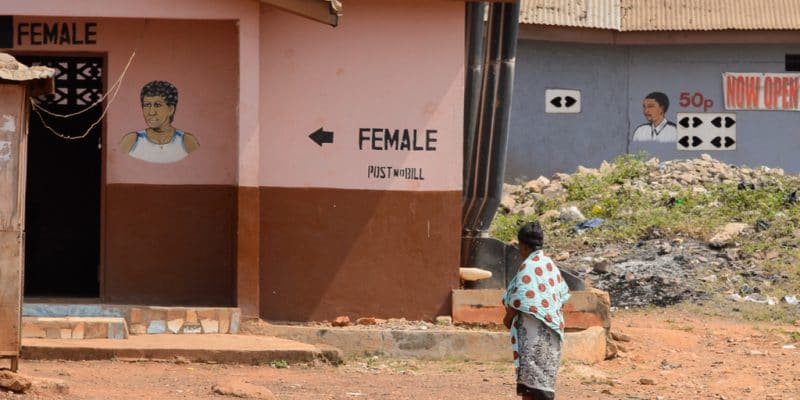The World Bank is providing a new loan of $74 million to the Ghanaian government to finance sanitation and drinking water in the Greater Kumasi Metropolitan Area. The project will benefit eight municipalities.
After the $125 million loan granted by the World Bank in September 2020 for the implementation of the Greater Accra and Kumasi Metropolitan Area (GKMA) Drinking Water and Sanitation Project, the Government of Ghana is getting a new $74 million funding. According to Ghana’s Minister of Sanitation and Water Resources, Cecilia Abena Dapaah, this additional loan from the international financial institution will be used to complete work on the Kumasi site.
Part of the recently allocated funds will be used to build 30,000 household toilets for low-income people in the Kumasi metropolitan area. Sanitary blocks will also be built in schools and health centers.
Delivery of facilities in 2024
Through this project, the Government of Ghana hopes to reduce open defecation in the greater Kumasi area, including the municipalities of Kumasi, Asokwa, Kwadaso, Old Tafo, Oforikrom, Ejisu, Suame and Asokore Mampong. According to the International Water Association (IWA), in 2019, 22% of Ghanaians still practiced open defecation, including 4.2 million people in rural areas where the practice is particularly prevalent.
Read also – Urban sanitation, a major challenge for sustainable cities in Africa
The drinking water component of the project in Kumasi consists of the installation of 120 km of pipes. The new facilities will connect 10,000 vulnerable households to the Ghana Water Company Limited (GWCL) drinking water network, “representing about 150,000 people living in the project areas,” said Minister Abena Dapaah at the launch of the project in September 2020.
This component will also support the improvement of the GWCL’s operational efficiency. According to the Ghanaian government, the various facilities will be fully operational by 2024.
Inès Magoum






